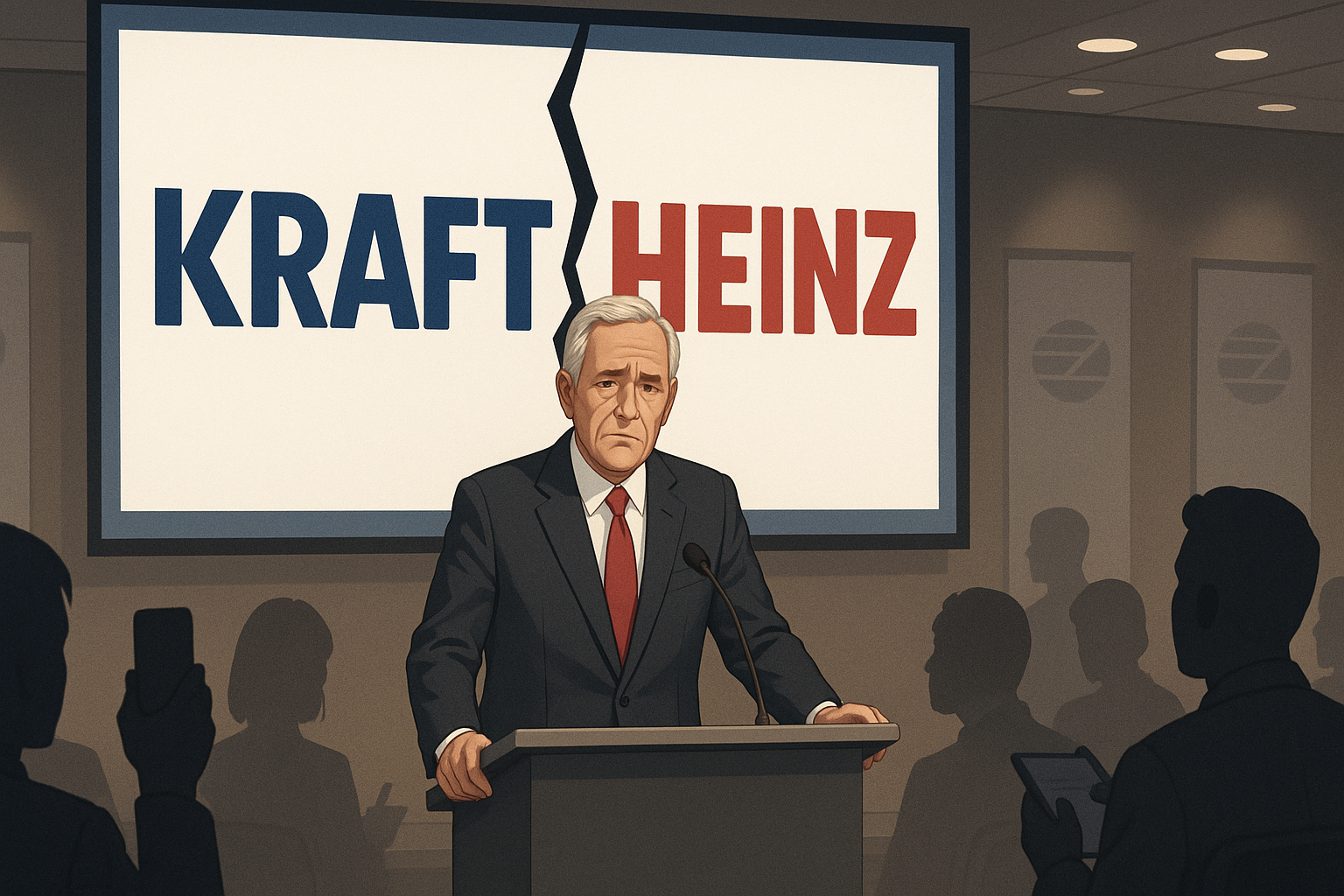Warren Buffett is disappointed. And honestly, who can blame him?
The Oracle of Omaha—never one to mince words—has publicly expressed his dismay over the Kraft Heinz split, a corporate divorce that's been years in the making but still somehow manages to sting. During a CNBC appearance (where else would the 93-year-old billionaire air his grievances?), Buffett admitted feeling let down by the decision to unwind the food giant he helped create back in 2015.
Markets, being the emotional beasts they are, promptly sent the stock tumbling 5%. Nothing says "thanks for your candor" quite like shaving millions off your company's market cap.
I've been watching these food conglomerate marriages for years, and they almost always follow the same script—ambitious wedding, difficult honeymoon, separate bedrooms by year five. This particular corporate union has been especially painful to witness.
Think about it. Berkshire Hathaway holds a massive 27.5% stake in the company—a position it hasn't touched since day one—making Buffett the reluctant father of the bride who now has to sit through the awkward separation proceedings. When he admitted the merger "didn't turn out to be a brilliant idea," you could practically hear the understatement alarm blaring.
Look, there's a pattern here that I call the "Grocery Aisle Consolidation Fallacy." Executives convince themselves that smashing together iconic brands creates some kind of unstoppable efficiency machine. Meanwhile, actual human beings are increasingly shopping the perimeter of grocery stores for fresh food while processed cheese singles gather dust in the center aisles.
The 2015 merger brought together 3G Capital (Buffett's partner in this ill-fated adventure) and their zero-based budgeting approach—corporate speak for "cut costs until the patient stops breathing, then cut a little more." Marketing budgets? Slashed. Research and development? Who needs innovation when you've got Lunchables!
Here's the thing that nobody seems to get: you can't cost-cut your way to growth when consumers fundamentally don't want what you're selling anymore.
The split, announced Tuesday with all the enthusiasm of a dental appointment, will create two separate companies—one focused on sauces and shelf-stable meals (the Heinz side), and another housing North American classics like Oscar Mayer and Kraft Singles (the Kraft portfolio). If this structure sounds vaguely familiar, that's because it's basically what existed before the merger. Eight years and $53 billion to end up right back where we started. Corporate America at its finest!
What struck me most about Buffett's comments wasn't just his disappointment in the split—it was his blunt assessment that "taking the company apart won't fix its problems." This is classic Warren. He's essentially saying what everyone's thinking but nobody will admit: the problem isn't the corporate structure, it's that Americans aren't as interested in processed cheese products as they once were. No amount of financial engineering can make people crave Velveeta again.
(Side note: I once interviewed a food industry analyst who told me, off the record, that these massive food conglomerates were "rearranging deck chairs on the Titanic." That was in 2018, and I've yet to hear a more accurate description.)
Greg Abel, Buffett's heir apparent who takes over Berkshire later this year, reportedly expressed his own disappointment to Kraft Heinz management. Can you imagine that conversation? "So the first major unwinding of a Buffett-era deal happens right as I take the reins? Perfect timing, guys. Really appreciate it."
There's a broader lesson here about the limits of financial engineering. You can merge brands, slash costs, optimize supply chains till the cows come home... but you can't force consumers to want what they increasingly don't.
Buffett did note that Berkshire will do whatever is in the best interest of the firm regarding its stake. Which means what, exactly? Your guess is as good as mine.
The irony is palpable—Buffett is disappointed in the split, and the market is disappointed in Buffett's disappointment. It's like a Russian nesting doll of corporate letdowns.
In the end, even the world's greatest investor sometimes finds himself holding onto the mayo a bit too long. And in this case, it's costing him billions.
